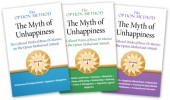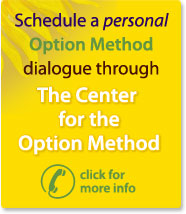Negative Judgments are not Necessary
In this talk, Bruce Di Marsico discusses the problematic and unnecessary nature of many types of negative judgments.
He starts with the proposition: Everything is good, in the sense that it is not bad. And everything is not bad in the sense that it can not cause unhappiness. Judging things as good or bad for happiness causes unhappiness; if something is bad for happiness then we will be unhappy if it happens; if something is good for happiness, then we will be unhappy if it doesn’t happen.
He then discusses how many judgments that things are good or bad for happiness are often stated as if they are objective observations (especially character traits), for example: “He is shy”, “She is talkative”, often mean “In my experience, he hasn’t wanted to spend time with other people, and that is a bad thing”, or “In my experience, she speaks more than other people I know, and that is a bad thing.”
Concerning negative judgments: nothing ever needs to be decided against. For example, in choosing health, we do not need to explicitly not choose every kind of sickness. A decision against cancer is really a decision for well-being. A decision against going out to party is deciding for things to remain as they are.
No reasons are necessary to justify your choices. You can like vanilla ice cream, because you like vanilla ice cream. Period. And not having reasons against doesn’t requiring you to decide for. If you think that sex is wonderful in everyway, and have nothing against it, that doesn’t mean you have to have sex.
Option Method – Negative Judgments are not Necessary

